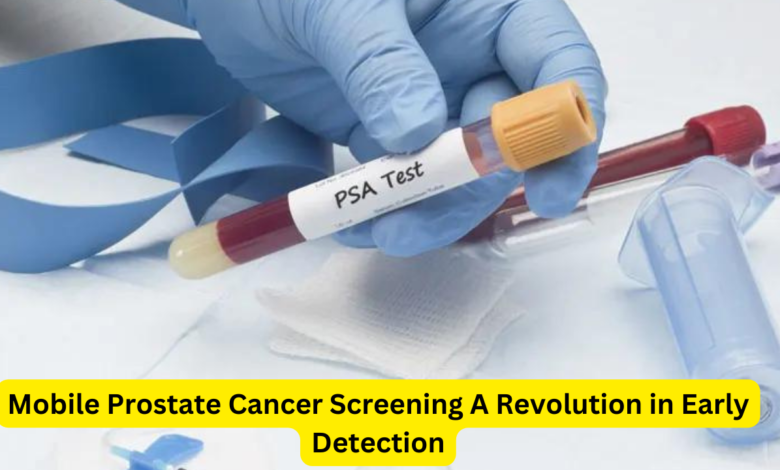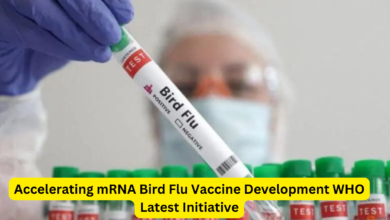Mobile Prostate Cancer Screening A Revolution in Early Detection

Mobile Prostate Cancer Screening A Revolution in Early Detection, Prostate cancer is a significant health issue worldwide, with increasing incidence rates and high mortality, especially among underserved populations. Early detection is crucial for effective treatment, yet many face barriers such as lack of resources, awareness, and trust in the healthcare system. Dr. Tewari’s innovative approach of utilizing mobile prostate cancer screening units aims to bridge this gap and improve outcomes for those most at risk.
The Growing Incidence of Prostate Cancer
Prostate cancer is one of the most common cancers among men globally. According to recent statistics, the number of diagnosed cases is on the rise, partly due to better screening methods and increased awareness. However, this rise also highlights significant disparities in healthcare access and outcomes, particularly among racial minorities and economically disadvantaged groups.
Why Early Detection Matters
Early detection of prostate cancer can dramatically improve survival rates. When caught early, the cancer is often more treatable and less likely to have spread to other parts of the body. Unfortunately, many men, especially those from marginalized communities, do not receive timely screenings due to various socio-economic barriers.
Barriers to Prostate Cancer Screening
Lack of Resources and Awareness
Many individuals in underserved communities lack the financial resources or health insurance to cover regular screenings. Additionally, there is often a lack of awareness about the importance of prostate cancer screening, leading to delayed diagnoses.
Work and Life Constraints
Taking time off work for medical appointments is not feasible for many men, especially those in lower-income jobs. This logistical challenge prevents them from accessing regular health check-ups and screenings, including those for prostate cancer.
Distrust in the Healthcare System
Historical and systemic issues have led to a pervasive distrust in the healthcare system among certain racial groups. This mistrust can discourage men from seeking necessary screenings, contributing to higher mortality rates in these populations.
Innovative Solutions: Mobile Prostate Cancer Screening Units
Bringing Healthcare to the Community
Mobile prostate cancer screening units are an innovative solution designed to overcome the barriers mentioned above. These units bring essential screening services directly to communities, making it easier for men to get tested without needing to travel or take significant time off work.
Increasing Accessibility and Convenience
By providing screenings in community centers, workplaces, and other easily accessible locations, these mobile units ensure that more men can benefit from early detection. This approach reduces the logistical and financial hurdles that often prevent timely screenings.
Building Trust Through Community Engagement
Mobile screening units also play a crucial role in building trust within the community. By partnering with local organizations and employing culturally competent healthcare providers, these units can foster a more welcoming and trustworthy environment for those who might otherwise avoid medical screenings.
Case Study: Dr. Tewari’s Mobile Prostate Cancer Screening Initiative
Dr. Tewari, a renowned expert in prostate cancer, has spearheaded a mobile screening initiative aimed at reducing healthcare disparities. His program targets high-risk communities, offering free or low-cost screenings and educational resources to encourage early detection.
Impact and Success Stories
Since its inception, Dr. Tewari’s mobile screening program has screened thousands of men, many of whom might not have otherwise sought testing. The initiative has identified numerous early-stage cancers, leading to timely and potentially life-saving treatments. Moreover, the program has significantly raised awareness about prostate cancer within these communities, promoting a culture of proactive health management.
The Future of Mobile Prostate Cancer Screening
Expanding Reach and Services
The success of mobile prostate cancer screening units highlights the potential for expanding such services to other regions and health conditions. By continuing to innovate and adapt to community needs, these programs can further reduce healthcare disparities and improve overall public health outcomes.
Collaborative Efforts for Greater Impact
Collaboration between healthcare providers, local organizations, and policymakers is essential for the sustained success of mobile screening initiatives. By working together, these stakeholders can ensure that resources are allocated effectively and that the programs reach those who need them most.
Conclusion
Mobile prostate cancer screening units represent a groundbreaking approach to addressing the challenges of early detection, especially among underserved populations. By bringing essential healthcare services directly to communities, these units can overcome significant barriers, promote early diagnosis, and ultimately save lives. Dr. Tewari’s initiative serves as a powerful example of how innovative solutions can create a profound impact on public health.




